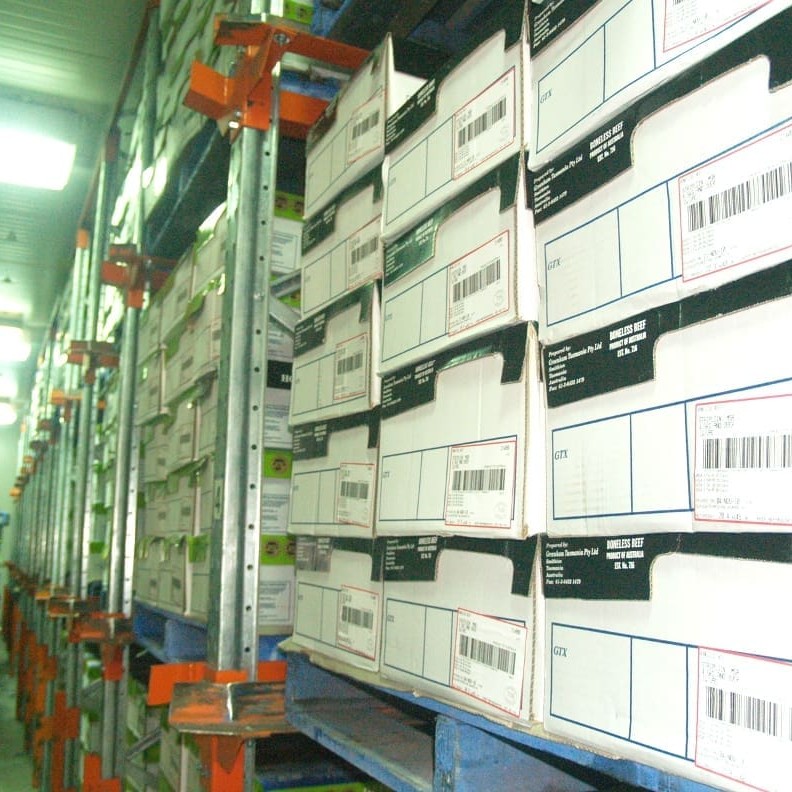 Already the impact of the Federal Government’s carbon tax is being felt across the red meat supply chain, adding further cost pressures to an industry already under the tightest of margin pressures.
Already the impact of the Federal Government’s carbon tax is being felt across the red meat supply chain, adding further cost pressures to an industry already under the tightest of margin pressures.
The tax, introduced from July 1, introduces a new phase of uncertainty for many Australian red meat businesses. Within the meat industry, processors are already under pressure from the elevated level of the A$ and uncompetitive production costs when measured on a global scale, partly driven by Government policy in areas like carbon abatement and AQIS fees and charges.
The majority of red meat-related businesses do not know how much of the increased costs faced by energy producers and others with direct and indirect liabilities will be passed on to them.
Up to ten meat processing plants will be directly liable for the carbon tax – essentially the largest entities, paying $23/tonne for their CO2 emissions. At one widely quoted example, JBS Australia’s Dinmore plant, the tax will account for an additional $2 million each year in costs.
Perversely, the tax will also act as an impost on economies of scale, as smaller plants producing emissions that fall below the 25,000 tonne trigger level will not be directly liable.
Some processors with plant outputs close to the 25,000t tax trigger point have indicated they may deliberately close their operations for some weeks, in an effort to escape the financial impact.
The Australian Industry Group (AIG) estimates carbon-related increases of around 2.1c/kilowatt hour of electricity and $1.20 per gigajoule of gas as a result of the tax.
AIG also suggests that smaller energy users who already pay higher prices but tend to spend a lower proportion of their revenue on electricity and gas will see a price increase of about 10pc. Larger users face increases of around 20pc for energy inputs that are central to their business.
Cold storage hard-hit
Beef Central made a few calls around the industry yesterday looking for examples of immediate impacts from the carbon tax, and it did not take long to find a representative case study at just one point along the supply chain.
A large wholesaler/meat trader with a footprint in Sydney/Melbourne/Brisbane markets, said his cold storage lease costs had gone up substantially, more than 2pc, as a result of a forecast 33pc rise in electricity costs.
The space he leases in a large commercial Brisbane cold store, alone, is expected to rise by $23,000/year as part of the annualised cost directly linked to the carbon tax.
The cold store owner’s normal peak rate is scheduled to go from 5.1c/kilowatt hour, to 7.2c/kilowatt hour. His off-peak charges are due to rise from 2.2c/kilowatt hour to 4.2c – almost double.
Under the tax, the price of some widely-used refrigerant gasses had also ‘gone silly’, the wholesaler said, with reports of up to 500 percent rises in price on some emissions-heavy gasses, linked to the carbon tax.
“People are just starting to realise what the carbon tax actually does mean, in terms of running costs,” he said.
Some transport companies had also put their rates up last week, in recognition of the tax’s impact, typically 2.2pc.
While agricultural emissions are outside the current scheme, the National Farmers Federation believes the cost of the tax will ultimately be passed on to producers, in the form of lower commodity prices.
The Australian Meat Industry Council, through its Climate Change Committee, has worked with the Australian Meat Processor Corporation to develop a red meat processing industry climate change strategy to coordinate industry education, extension and R&D to implement programs aimed at mitigating the impact of pricing carbon. While none of these projects have yet received financial support from the Federal Government, announcements are expected soon.
18pc increase in NSW power
Meanwhile the New South Wales Independent Pricing and Regulatory Tribunal (IPART), this week announced that carbon price costs accounted for about half of the average 18.1pc increase in NSW electricity prices announced recently.
The price regulator’s report highlighted the continuing rise in electricity network costs as being responsible for nearly half the average 18pc price increase, declaring the introduction of the carbon pricing mechanism and it’s carbon offsetting schemes being delivered by State and Federal governments as responsible for the remainder.
The report also criticises the Renewable Energy Target scheme, the NSW Energy Savings scheme and the NSW Climate Change Fund levy that is being used to manage the blow-out in costs associated with the closed Solar Bonus household scheme as accounting for the lion’s share of the costs associated with pricing carbon.
The IPART report also nominated key Federal and State actions that could reduce power bills.
NZ takes go-slow approach
Across the Tasman Sea, the New Zealand government has announced changes to its Emissions Trading Scheme that will see agricultural emissions, which account for just under half the nation's total greenhouse gas emissions, left out of the scheme until at least 2015.
The “one-for-two” arrangement for those captured by the scheme (including eligible NZ meat processing facilities) need only surrender carbon units equivalent to half their emissions. This aspect of the NZ scheme will continue until after this year, unlike the Australian scheme where carbon-liable meat processing facilities started paying the full carbon tax rate from July 1.
The NZ government will later this year introduce a bill to give effect to the changes.
